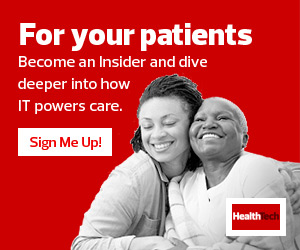Why Healthcare Organizations Should Choose a Modern Data Platform
Recently, a healthcare organization reached out to me to discuss how it could modernize its approach to data and best manage its data needs across the organization. Turning to a modern data platform that can systematically pull in data from varied sources could help that organization break down silos and open insights across departments, from supply chain to clinical. All areas of a healthcare organization can benefit from an improved, agile and well-governed data platform from which data can be easily and securely shared.
A major driver for this change is the shift in healthcare from a fee-for-service reimbursement model toward value-based care. Insights and action derived from data help clinicians understand whether their treatments are improving a patient’s health and provide a continuum of care rather than discrete, one-time services.
DIVE DEEPER: Discover the importance of having a modern data platform.
Another driver for change is the industrywide initiative to achieve the Institute for Healthcare Improvement’s Quadruple Aim, including improving clinician wellness. Data and analytics are meant to support and improve clinicians’ experiences, not hamper them.
So, when should a healthcare organization make the change to a modern data platform? Internal and external feedback can help guide the decision.
Internally, departments may already express dissatisfaction with their current data and analytics capabilities. Perhaps the emergency department is unable to make quicker decisions because it lacks real-time insights to bed capacity.
Externally, an organization can reach out for third-party input from technology experts and consultants to assess its current ecosystem and make recommendations based on what the organization hopes to achieve.
What’s Next for Data Platform Modernization in Healthcare?
Healthcare systems don’t have to reinvent the wheel; they can learn from the experiences of other providers, other industries or expert partners. Progress has been made over the past several years that lays out a blueprint for how to modernize a data platform and how to leverage cloud most effectively.
If a healthcare organization is ready to move forward to a modern data platform, it first needs to gauge its status on cloud adoption. It can be difficult for a healthcare organization to jump into modernizing its data platform unless leaders decide that the data platform is going to be the driver for leveraging cloud more.
READ MORE: What is master data management, and why is it important for healthcare?
If an organization has already taken steps to leverage cloud capabilities for its electronic health record (EHR) system or financial data, it’s in a better position to adopt a modern data platform. Starting from zero will delay adoption, especially since security, privacy and compliance teams need time to plan for business continuity and personnel training.
Healthcare organizations also should consider their EHR data capabilities and how that could impact what their future data platform might look like. Will they leverage what the EHR vendor provides or build a new platform? Instead, they can leverage what their EHR vendor has and look to augment with other technologies. That’s the best practice now, regardless of EHR capabilities: Leverage what the EHR vendor is providing and move toward modernizing overall.
A healthcare organization that has its data together, organized and understood in a modern data platform can help build a better future. This is no longer just nice to have; it’s critical for any healthcare organization’s long-term success.
This article is part of HealthTech’s MonITor blog series. Please join the discussion on Twitter by using #WellnessIT.












